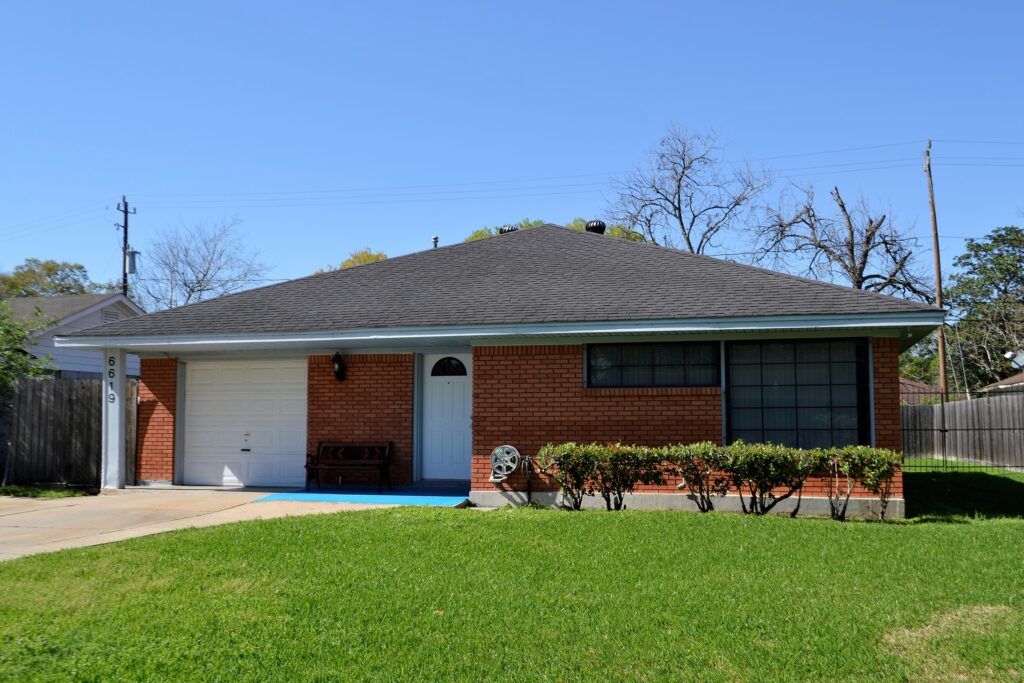Pre-Foreclosure: What Does It Mean and Can You Buy These Properties?
Click here to browse our Real Estate Agent Directory and contact top-rated agents in your area!
It seems like it’s been a while since foreclosures have been a main topic in the news. But if you have been browsing listings online, you might have encountered a few houses labeled as “pre-foreclosure.”
Does a pre-foreclosure property mean that it’s for sale? Not exactly. But it might be.
Let’s dive into how these properties get listed and how you might snag a deal.

What is a Pre-Foreclosure Home?
A pre-foreclosure home is a property that is in the early stages of the foreclosure process. This label means that the homeowner defaulted on their mortgage payments. However, the property has not yet been repossessed by the lender or sold at a foreclosure auction.
The Foreclosure Process
Foreclosure is a legal process that allows a lender to repossess property from a borrower. This only happens when the borrower has failed to make their mortgage payments. The foreclosure process can be complex, varies by state, and involves several steps, including a pre-foreclosure process.
How Does Pre-Foreclosure Work?
The pre-foreclosure process begins when the borrower fails to make a mortgage payment. Then, after three months of missed payments, the lender will send a notice of default to the borrower. This notice will inform them that they are in default and must bring the loan current within a specific period. It’s important to note that there’s a difference between a notice of default and a notice of sale.
A notice of default gets publicized.
The foreclosure process typically begins when the lender files a notice of default with the county recorder’s office. The notice will indicate that the borrower is in default on their mortgage.
>> AGENT ANSWERS: Where do I find someone certified in short loans and foreclosures?
When homebuyers and investors see pre-foreclosure listings online, these properties have been issued with a notice of default. If you want to find pre-forclosure properties before they go online, a list can usually be found at the county recorder’s office. Look for Notice of Sale, Lis Pendens, and Notice of Default in country records.
Notice of Trustee Sale
If the borrower fails to bring the loan current, the lender will file a notice of trustee sale with the county recorder’s office, indicating that the property will be sold at auction.
At any point during the pre-forclosure process, the borrower still has an opportunity to avoid foreclosure. They can do this by bringing the loan current, meaning paying what they owe, or negotiating with the lender to modify the loan terms. A loan modification may involve reducing the interest rate, extending the loan term, or reducing the principal balance.
If the borrower cannot avoid foreclosure, the property will be sold at auction. The proceeds from the sale will be used to pay off the outstanding mortgage balance. However, if the proceeds from the auction are insufficient to pay off the mortgage, the borrower may still be liable for the remaining balance.
How Long Is the Pre-Foreclosure Process?
The pre-forclosure and foreclosure proceeding process varies depending on state and county. If you want an accurate timeline, it’s best to check your local country’s rules. However, it takes 3-6 months for a lender to auction or take possession of a property.
When does the foreclosure Happen?
If a borrower is unable to bring their loan current within the disclosed time, they will receive a notice of trustee sale informing them of the sale date and time.
At the auction, the property will be sold to the highest bidder, sometimes for less than the outstanding mortgage balance. The proceeds from the sale will be used to pay off the outstanding mortgage balance, and any remaining proceeds will be distributed to any other lienholders or the borrower.
If the property does not sell at the auction, the lender may take ownership of it and sell it through other means, such as listing it for sale with a real estate agent.
What’s the difference between foreclosure and pre-foreclosure?
Pre-foreclosures are the initial stage of the process when the borrower has missed payments, but the lender has not yet taken legal action to reclaim the property. During this time, the borrower may have the opportunity to negotiate a loan modification with the lender, catch up on monthly payments, or sell the property to avoid foreclosure.
Foreclosure, on the other hand, is the legal process by which the lender reclaims the property and sells it to recover the outstanding debt. At this stage, the borrower has lost the right to the property and must vacate.
Can Borrowers Avoid Foreclosure?
During the pre-foreclosure period, the homeowner may still have the opportunity to sell the property before the foreclosure is finalized.
Borrowers trying to avoid foreclosure have a few options:
- Bring their outstanding loan balance current.
- A traditional sale. This process only works if the borrower has enough equity in the property to cover the mortgage repayment and cost of sale.
- A short sale in which the homeowner sells the property for less than the amount owed on the mortgage, and the lender agrees to accept the proceeds as full payment.
- A cash sale to an investor
Why Should A Mortgage Borrower Avoid A Foreclosure Proceeding?
A foreclosure should always be avoided if possible. They don’t serve borrowers and generally don’t serve lenders.
Firstly, a mortgage foreclosure significantly damages a borrower’s credit history. If a borrower must undergo a short sale or foreclosure, they will most likely be unable to obtain financing on another property for at least seven years.
>> AGENT ANSWERS: What are red flags when buying a flipped house?
Furthermore, when a home goes through a foreclosure sale, it almost always sells for below market value. These properties demand less competition from other buyers, as many people are hesitant to purchase a property in the pre-foreclosure stage. As a result, borrowers receive less proceeds from a foreclosure sale than they would from a traditional sale.
Why do Investors Target Pre-Foreclosure Listings
Investors often target pre-foreclosure properties because they can hope to buy the property at a discounted price. Owners under the stress of pre-forclosure are often motivated to sell the property quickly to avoid the foreclosure process and are more willing to accept a lower price than the market value in order to do so.
Investors may also see the potential for profit by purchasing a pre-foreclosure property and then flipping it for a higher price or renting it out for a steady income stream with a higher ROI than a typical purchase. Again, it’s a popular way to get a deal on real estate.
In some cases, investors negotiate with the owner to take over the mortgage payments and assume ownership of the property, allowing them to avoid the foreclosure process altogether. These types of investors usually have buy-and-hold, fix-and-flip, or wholesale investment strategies.
How do real estate investors buy a pre-foreclosed home?
Homeowners facing foreclosure usually know that selling their homes is their best option. But unfortunately, most don’t have the funds or equity to afford real estate professionals.
When investors see the pre-foreclosure status of properties, they often try to reach out to mortgage borrowers on their own. Their outreach usually comes as a phone call, letter, or direct knock on the front door. When investors see the pre-foreclosure status of properties, they often try to reach out to mortgage borrowers on their own. Their outreach is usually in the form of a phone call, letter, or direct knock on the front door.
Homeowners: Be Wary of Aggressive Investors
For homeowners facing foreclosure, investor offers can be a lifeline, providing cash quickly and helping the borrower avoid the negative impact of a foreclosure on their credit score.
However, borrowers must be cautious when dealing with investors or buyers who approach them. Expect them to try to take advantage of a homeowner’s financial distress by offering lowball offers or using high-pressure tactics to convince them to sell.
Owners should seek advice from a trusted real estate professional or attorney before agreeing to any investor offers. In addition, before accepting an offer, borrowers should understand their property’s value and make sure they don’t have other options to catch up on their monthly payments.
The best way to understand your property’s market price is by consulting with a local real estate agent. Find and compare top real estate agents with FastExpert.

Buying a Pre-Foreclosure Home Comes With Risks
Before diving into buying a pre-foreclosure home purchase, remember that they are not risk-free purchases.
The risks of buying a home in pre-foreclosure include:
- Buying As Is: When purchasing through the MLS or a real estate agent, buyers typically have the opportunity to negotiate repairs or contingencies before closing the deal. However, when buying a home in pre-foreclosure, the sale is often “as is,” meaning the buyer takes the property in its current condition without any guarantees or warranties. This could result in unexpected repairs or maintenance costs that the buyer did not anticipate.
- Unclear Market Value: When a property isn’t listed on the MLS, it doesn’t get the same level of market exposure. This means that it can be challenging for even buyers to understand its true value. To mitigate this risk, it’s best to consult a real estate agent.
- Deferred Maintenance: Homeowners struggling to make mortgage payments usually struggle to afford regular home maintenance. Deferred maintenance can include anything from leaky roofs and plumbing issues to electrical problems or broken appliances. In an “as is” sale, buyers are responsible for any repairs and renovations, which can quickly add significant expenses to a purchase.
- Liens and Judgments: Other debts and obligations, such as property taxes, homeowner association fees, or contractors’ bills, might be tied against a property. Buyers can end up inheriting these debts if they purchase the property. Mitigate this risk by running a title search before making an offer.
- Legal Complications: Buying a pre-foreclosure property can be a complicated legal process, and there may be multiple parties involved, such as the homeowner, the lender, and any other creditors or lien holders. All parties must be in agreement with the sale, and all necessary legal documents are in order. Get help with the legal process of buying a home in pre-foreclosure by engaging a real estate agent.
- Emotional Stress: The pre-foreclosure process can be emotionally challenging for the buyer and seller. The homeowner is facing financial hardship and the loss of their home, while the buyer may feel pressure to close the deal quickly and secure the property. Buyers must approach the process with empathy and respect and be prepared for the potential emotional stresses that may arise. Instead of trying to complete the purchase on your own, engage an experienced real estate agent who can help navigate negotiations and be an intermediary between parties.
Talk to Your Agent
While many investors and homebuyers looking to save money choose to pursue pre-foreclosure homes without representation, a real estate agent can add value to your deal and protect parties against risk.
Find top real estate agents in your area with FastExpert. We have the largest database of ranked agents, so you can easily compare top agents.





